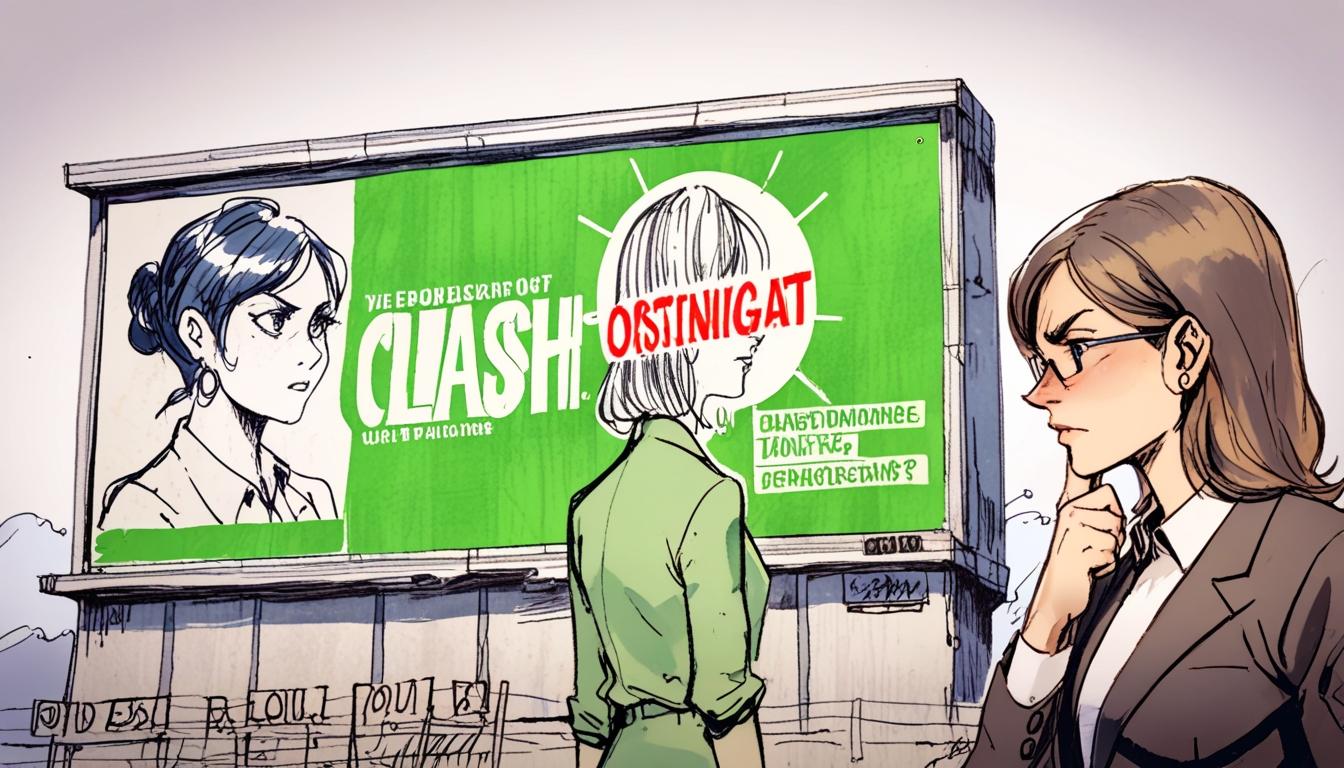Polina Zabrodskaya, a former creative director at advertising agency AMV BBDO, has publicly shared her experience of raising concerns about sustainability claims in the advertising industry, raising critical questions about the credibility of corporate environmental campaigns. Speaking to The Drum, Zabrodskaya, who is currently engaged in an employment tribunal against AMV BBDO, detailed her journey from growing up in a heavily polluted industrial city in Russia to confronting alleged greenwashing within a leading global advertising agency.
Born in Tula, a city south of Moscow known for its severe industrial pollution, Zabrodskaya described her early environment where factories emitted toxic pollutants such as vanadium pentoxide. Despite regulations on paper, actual pollution was widespread and visibly evident, with black snow falling as a symbol of environmental contamination. She recounted that this pollution was largely accepted by the community, as the factories provided employment, and health problems were attributed to other factors.
Years later, Zabrodskaya found herself in a contrasting environment as a creative director at AMV BBDO. She highlighted a significant moment when she was assigned to work on a global sustainability campaign for Mars, the multinational food company. Upon investigating the campaign, which made strong claims of “100% responsible” sourcing and environmental initiatives, she discovered discrepancies. Zabrodskaya pointed out ongoing issues such as documented child labour in Mars’ cocoa supply chains and the environmental damage linked to fisheries used in Sheba cat food campaigns. Despite presenting her concerns internally, she reported being instructed to stop investigating and subsequently faced suspension from her role.
Zabrodskaya elaborated on the deeper problem within sustainability advertising, describing it as a series of "softer, polished distortions" that often prioritise corporate profit over genuine impact. She criticised the reliance on third-party certifications, like Rainforest Alliance and Marine Stewardship Council (MSC), which she said offer “plausible deniability” without ensuring true sustainability. She questioned the effectiveness of campaigns that promote slogans conveying hope and responsibility while underlying issues remain unresolved.
Addressing the broader implications, Zabrodskaya stated, “It’s really difficult to get people to understand something when their salaries depend on them not understanding it.” She challenged the advertising industry's ability to hold clients accountable for their environmental claims when employees risk their careers by voicing the truth. She further noted, “If a company’s supply chains aren’t sustainable, its sustainability campaigns aren’t just misleading, they’re harmful.”
Zabrodskaya's employment tribunal was scheduled for Thursday, 24 April, where she alleges harassment and discrimination linked to her efforts to raise these concerns within AMV BBDO. Mars declined to comment on the internal employment matter but emphasised its investments in environmental, social, and governance initiatives and its plans to reduce greenhouse gas emissions. Meanwhile, AMV BBDO chose not to comment on ongoing legal proceedings.
In addition to pursuing legal representation, Zabrodskaya is encouraging the industry to report cases of greenwashing through Climate Whistleblowers, an initiative aimed at exposing misleading environmental claims. Her account adds a significant voice to the ongoing debate on the role of advertising in sustainability and corporate accountability.
Source: Noah Wire Services
